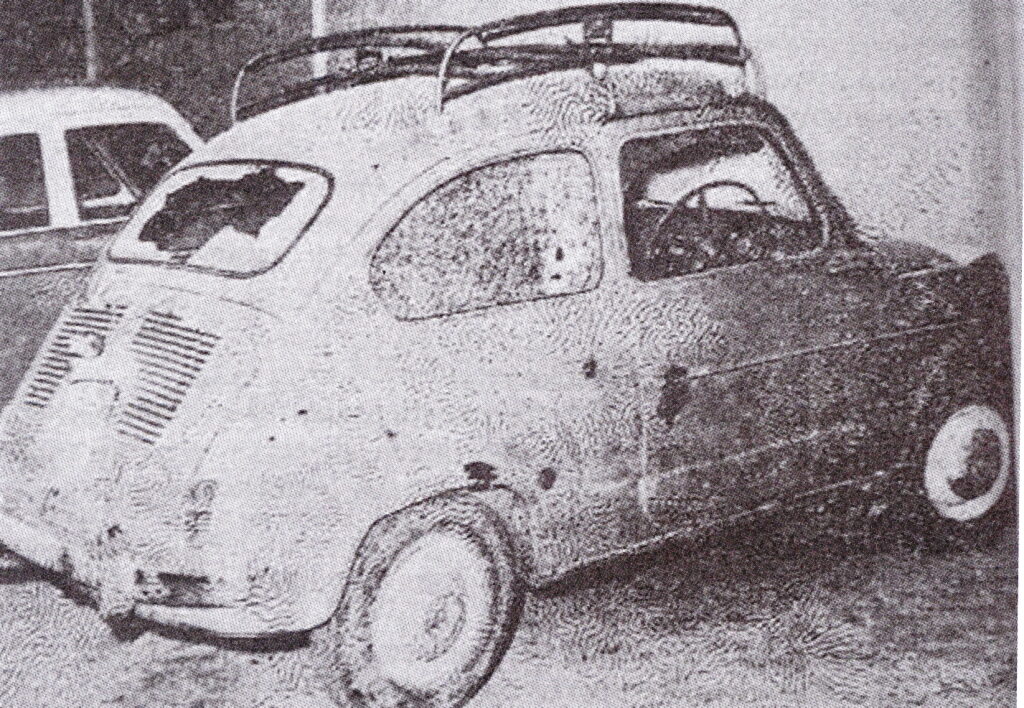An unprecedented case for Cyprus’s legal system concerning the murder of two EOKA fighters one year after the establishment of the Cyprus Republic proceeded to court yesterday.
The families of fighters Neoklis Panagiotou and Evripides Nourou filed a lawsuit against the Cyprus Republic, seeking moral vindication of the victims, restoration of their memory and compensation for moral damage, pain and suffering.
The lawsuit was filed by law firm A & A. Aimiliaidis, K. Katsaros & Associates, with the Attorney General as defendant representing the Republic. The lawsuit clarifies that the Republic department related to the disputed events is the Cyprus Police.
Phileleftheros had brought the case to light on 29 October 2022, when it revealed a related letter the families had sent to then-President Nicos Anastasiades.
Subsequently, after no reaction from the state to the families’ request, they proceeded on 1 June 2023 to send a new letter with identical content to current President Nicos Christodoulides.
Court action after state silence
Two years and three months later, after, again, no reaction from the state, the families of the two EOKA fighters went to the Nicosia District Court.
The matter is now before the courts. The case, 64 years after the murder of Nourou and Panagiotou, is of great interest, as it is certain that in such a trial, evidence and testimonies will be submitted about that grey era that will cause uproar, given that various names are implicated in the murder case of the two fighters, including first-class figures of the country’s political life at that time.
Murder details from lawsuit
In yesterday’s lawsuit filed at court by law firm A & A. Aimiliaidis, K. Katsaros & Associates, murder details are recorded as follows:
“On or around 16/8/1961 whilst Neoklis Panagiotou and Evripides Nourou were moving within the Nicosia-Limassol motorway heading towards Limassol, they became recipients of a murderous attack. The attack took place at a distance of about 400 metres from Moni Police Station, a point where their corpses were found inside their vehicle, which was riddled with bullets”.
The murder occurred during a period of increased political violence including attacks against other political figures of the time. The murder was condemned by a series of parties and organisations, leading to complaints by the Cyprus Republic before the United Nations Human Rights Commission.
Intelligence officer reveals murder details
On or around 21/8/1961, senior Police Officer and Cyprus Intelligence Service official Georgios Lagodontis sent a letter to EOKA leader Georgios Grivas, explaining his personal knowledge about the murder events.
Through his letter, he explained that the murder was committed by Intelligence Service personnel using police service weapons given to the physical perpetrators by members of the personal guard of a government minister.
He also alleged the murder was committed following orders from the same minister as a result of false information he had received that Panagiotou and Nourou planned to assassinate him.
Lagodontis attributed these false reports to attempts to create discord between EOKA fighters who supported President Makarios and those supporting Georgios Grivas.
Through his letter, Lagodontis explained that the two murdered fighters were called to Nicosia supposedly to be hired at Cyprus Broadcasting Corporation, when it was discovered the invitation was invalid.

Police surveillance and killing
After visiting various places in Nicosia, Nourou and Panagiotou visited police officer Georgiades’s office at Police Headquarters, where Lagodontis was present, reporting they were being followed by four people in a vehicle that day.
Lagodontis stated in his letter that on the same day’s afternoon, he was informed by sub-inspector Nikos Ioannou that Panagiotou and Nourou were murdered by the police officers following them just outside Moni Limassol after refusing to submit to a body search.
Lagodontis named two sergeants of the Intelligence Service as the shooters.
Lagodontis reported visiting the minister the same day, who appeared to know about the murder, and called on him to order the killers’ arrest and summon the Police Chief to assign case investigation.
Although Lagodontis explained to the Minister that only then would he be relieved of responsibility for the murder, the minister refused his suggestions.
Presidential request for investigation
On or around 2/9/1961, following orders and/or request from then-President Archbishop Makarios III to senior Police Officer and Cyprus Intelligence Service official Georgios Lagodontis, a letter/report was prepared and sent explaining the events leading to Panagiotou and Nourou’s murder.
The letter stated the murder was conducted by named individuals who were police members and/or using police weapons and/or following orders from the then-Minister.
The letter named the killers as two Intelligence Service sergeants and a police officer serving at the Police School.
Media coverage and evidence
On or around 21/5/1963, in a “Machi” newspaper article, Nikos Sampson characterised Panagiotou and Nourou’s murder as a political assassination aimed at silencing them.
On 27/5/1963, “Synagermos” newspaper called on Sampson to present his evidence. It noted that whilst other Sampson reports about alleged political murders were denied by the Interior Ministry, no corresponding denial existed regarding Panagiotou and Nourou’s murder.
On 26/8/1963, Sampson delivered a handwritten letter to the plaintiffs naming specific individuals as the murderers, stating his source was a friend of the killers.
Again, the defendant and/or police neglected and/or failed to take related statements and/or ensure verification of the killers’ identity and/or motives.
Fundamental rights violations alleged
The lawsuit records a series of fundamental rights violations of the two families, including that the defendant Republic failed to investigate the circumstances under which Panagiotou and Nourou were murdered.
Despite having the capability, after Lagodontis’s information was brought to their attention, they failed to arrest murder suspects, neglected to investigate related testimonial material, lost case files when requested, and failed to examine claims about political motives behind the murders.

